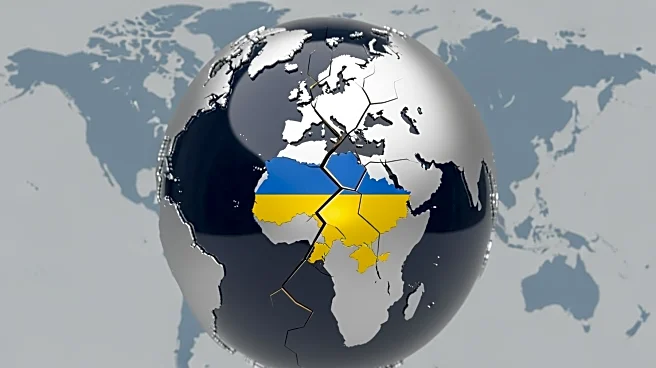What's Happening?
President Trump announced on October 25 that he will not meet with Russian President Vladimir Putin unless there is a clear path to a peace agreement between Russia and Ukraine. Trump expressed disappointment
over the lack of progress in achieving peace, despite his historically good relationship with Putin. He noted that he expected the Ukraine peace process to be easier than other diplomatic efforts he has undertaken. White House Press Secretary Karoline Leavitt mentioned that a Trump-Putin summit is not entirely off the table, but emphasized the need for tangible outcomes from such a meeting. The announcement follows the U.S. imposing sanctions on Russia's major oil companies, Rosneft and Lukoil, aiming to pressure the Kremlin into accepting a ceasefire.
Why It's Important?
The decision by President Trump to withhold a meeting with Putin underscores the U.S. administration's stance on the ongoing conflict between Russia and Ukraine. The sanctions on Russian oil companies signal a significant shift in U.S. policy, potentially impacting global oil markets and exerting economic pressure on Russia. This move could influence Russia's willingness to negotiate peace, affecting geopolitical stability in Eastern Europe. The situation also highlights the complexities of international diplomacy, where personal relationships between leaders may not always translate into policy outcomes. The broader implications for U.S.-Russia relations and the potential for peace in Ukraine remain significant.
What's Next?
The U.S. administration may continue to leverage economic sanctions to push for a ceasefire in Ukraine. The possibility of a Trump-Putin summit remains, contingent on Russia's actions towards peace. Stakeholders, including European allies and international organizations, may react to these developments, potentially influencing diplomatic strategies. The effectiveness of sanctions in achieving desired outcomes will be closely monitored, and further diplomatic efforts may be required to resolve the conflict.
Beyond the Headlines
The ethical dimensions of using economic sanctions as a tool for peace negotiation are complex, as they can have unintended consequences on civilian populations. The long-term impact on U.S.-Russia relations could shape future diplomatic engagements and influence global power dynamics. The cultural and historical animosities between Russia and Ukraine add layers of complexity to the peace process, requiring nuanced approaches to conflict resolution.









